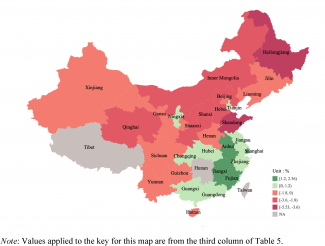FILTER
Displaying 11 - 20 of 66 publications
Abstract Sweden was one of the first countries to introduce a carbon tax in 1991. We assemble a unique dataset tracking all CO2 emissions from the Swedish manufacturing sector to estimate the impact…
| Peer Reviewed | Sweden, Global HubThe main aim of this paper is to analyze the different impacts of carbon taxation inMexican households at different income levels. First, we estimate a household demandsystem for non-durable goods…
| Peer Reviewed | Central America and Mexico, Global HubAbstract One reason carbon prices are difficult to implement is that they might impose high costs on poor and vulnerable households. In response, studies often highlight that recycling revenues…
| Discussion Paper |Abstract While carbon pricing, in general, and carbon taxes, in particular, are popular with economists, they are subject to considerable misunderstanding among policymakers and the public. In this…
| Discussion Paper |
Carbon credit trade is a worldwide Kyoto protocol enterprise established to alleviate the release of greenhouse gases to the atmosphere and make it financially unappealing. It offers monetary payments...
| Peer Reviewed | KenyaAbstract Carbon taxes and fossil fuel subsidy reforms have been recognized as an efficient means to mobilize substantive domestic resources for sustainable development. Yet, despite their advantages…
| Peer Reviewed | Nigeria
By Moritz A. Drupp, Frikk Nesje and Robert C. Schmidt.
| Other Publications |China is implementing what is expected to become the world's largest CO2 emissions trading system. To reduce emissions, the nation employs a tradable performance standard (TPS), a rate-based…
| Peer Reviewed | ChinaWhile ex-ante evaluations of climate mitigation policies predict that co-benefits of improved air quality will enable the aggregate benefits of climate mitigation policies to outweigh their costs…
| Peer Reviewed | ChinaPagination
- First « First
- Prev ‹‹
- 1
- 2
- 3
- 4
- 5
- 6
- 7
- Next ››
- Last Last »

